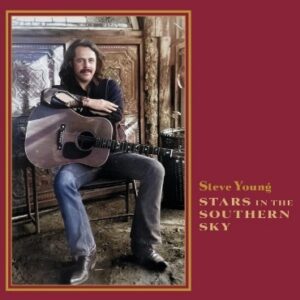Webb Pierce and Sam Hunt: Care For A Sample? It’s Hard to Forget
James Akenson
Would you care for a sample? No. We don’t mean a color sample, a Whitmans’s Sampler of candy, a Free Sample of a new product, or even a sample in statistical research! We’re talking about a sample of very traditional Country Music! REALLY old stuff in this case. Not the 1980s and 90s Country Music that of the early Garth Brooks and George Strait emergence…although that’s the Dark Ages for lots of young Country Music fans.
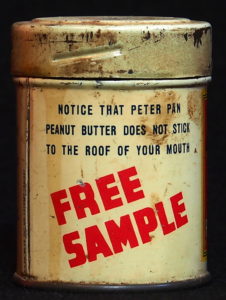 Just when you’ve given up that Country Music will ever be just a bit traditional we come upon a hip contemporary Country Music artist referencing 1950s Country Music. Sam Hunt’s Hard to Forget surprises us. Sam Hunt will take us back a good sixty-seven years. That’s a fur piece’ as they say in the country. And..it happens in a manner that points to a hip-hop influence that some Country Music fans, critics, and artists criticize as not being country.
Just when you’ve given up that Country Music will ever be just a bit traditional we come upon a hip contemporary Country Music artist referencing 1950s Country Music. Sam Hunt’s Hard to Forget surprises us. Sam Hunt will take us back a good sixty-seven years. That’s a fur piece’ as they say in the country. And..it happens in a manner that points to a hip-hop influence that some Country Music fans, critics, and artists criticize as not being country.
BUT….while we’re at it…let’s just remind folks that African Americans have ALWAYS had a major impact on Country Music. Just think Jimmie Rodgers The Father of Country Music and the first person inducted into the Country Music Hall of Fame. How about Rodgers’ 1928 breakout song Blue Yodel #1 commonly known as T For Texas.
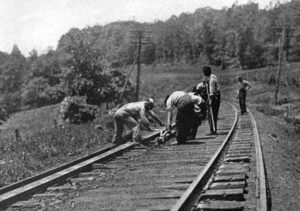
Nolan Porterfield’s biography of Jimmie Rodgers notes the influence of African American gandy dancers . Blue Yodel Number 1 follows a Blues format. The first line is repeated. The third line is different. It’s packaged in 12 bars of four bars per line.
That’s not all folks. Jimmie Rodgers recorded with none other than jazz trumpeter Louis ‘Satchmo’ Armstrong and Armstrong’s wife Lillian Hardin in 1930. Standing on the Corner…also known as Blue Yodel Number 9 Johnny Cash thought it important enough to sing with Louis Armstrong on his television program that ran from 1969 to 1971.
We could spend this entire Country Underground Australia piece on the remarkable African American influence and exchange with Country Music. Let’s just say that Jimmie Rodgers makes the point clear and get back to taking a look at an African American influence on current Country Music in the music of rising star Sam Hunt.
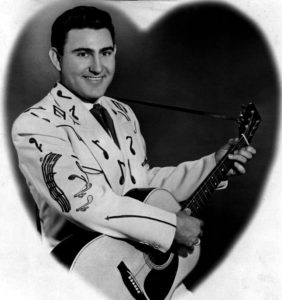
So…just how did an up and coming 21st century young Country Music artist Sam Hunt end up connecting back sixty-seven years to a classic by Webb Pierce? Sampling takes a portion of an artist’s recording and uses it in a new recording. Sampling has been particularly important to hip-hop music.
Country Music traditionalist don’t care for the recent trend to use hip-hop styles of rapping, talking, and singing. Sam Hunt uses hip-hop influences including sampling on Hard To Forget.
The hip-hop inspired sampling of Webb Pierce’s There Stands The Glass, just might just might not be upsetting to Country Music traditionalists. Nor would the clever lyrics about got a bottle of whiskey but I’ve got NO PROOF. Drinking songs are part of the Country Music tradition.
The sampling means There Stands The Glass, a 1953 drinking song, will be heard by current Country Music fans of the very hip Sam Hunt.
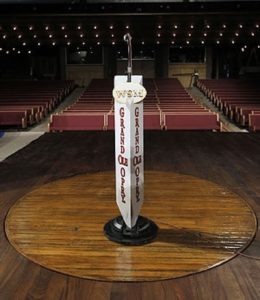
Not familiar with Webb Pierce? Don’t fret! Loads of current Country Music fans don’t know about Pierce either. Paraphrasing a great Country Music song Yes…I’m that easy to forget. It takes more than being inducted into the Country Music Hall of Fame to keep the majority of current Country Music fans familiar with an artist who died in 1991.
A few icons like Hank Williams, Patsy Cline, Johnny Cash, George Jones, and Elvis Presley have been kept in front of the Country Music audience through a combination of tragic deaths, movies, museums, loads of hits that became standards, books, articles, web sites, and great marketing by their estates.
Yes. Sam Hunt shouldn’t have gotten a DUI (Driving Under The Influence) citation in Nashville, but he did the right thing and immediately apologized.
Country singer Sam Hunt was arrested early Thursday for allegedly driving under the influence, according to an arrest affidavit obtained by CNN.
Hunt, who’s known for such country hits as “Body Like a Back Road” and “Drinkin’ Too Much,” was stopped by police in East Nashville, Tennessee, after he was observed driving the wrong way down a road.
According to the affidavit, authorities had been on the lookout for a reported driver going south in the northbound lanes in the area of Ellington Parkway near Ben Allen Road.
Police said Hunt, whose legal name is Samuel L. Hunt, had difficulty “staying in the lane of travel and crossed the center divide several times before a stop was initiated.”
Come to think of it, art is imitating life is imitating art, rather like Hank Williams, Jr sang in Family Tradition. The lyrics as Hank, Jr. Why must you live out the songs that you wrote to which Hank, Jr. answers he’s continuing an old family tradition.
So…why did the Sam Hunt and the songwriters decide to sample Webb Pierce’s 1953 hit? We can’t ask Audrey Grisham, Mary Jean Shurtz and Russ Hull since they’re deceased. They wrote There Stands the Glass and are listed as Co Writers on Hard To Forget. Sam Hunt and team rightfully included There Stand’s The Glass songwriters so their descendants…or whoever now owns the copyright…will be paid royalties.
Forget the ethics of giving credit. A famous lawsuit resulted in a 7.4 million dollar copyright judgment against Pharrell Williams and Robin Thicke. They sampled Marvin Gaye’s 1977 hit Give It Up without crediting Gaye and paying royalties. The whole realm of copyright is complicated, but that’s all we need to know.
Contacting Sam Hunt and the other Hard To Forget writers is difficult. Artists are part of bureaucracies almost as bad as what critics say about Washington, D.C., big corporations, and even state governments. Direct Messages and emails didn’t result in any responses. Some evidence is available in these comments from Rolling Stone Country.
One morning last fall, Luke Laird was eating breakfast and listening to one of his favorite Apple Music playlists, Honky-Tonk Essentials. When Webb Pierce’s 1953 hit “There Stands the Glass” started playing, Laird had a strange thought.
“I was like man, ‘What if I made a beat and sample that?’” he thought to himself.

The extensive sampling utilized on “Hard to Forget” represents a first of sorts in country music, a natural next step for a commercial genre that has been incorporating hip-hop production for the past decade-plus. While Jake Owen’s “I Was Jack (You Were Diane)” interpolated fragments of John Mellencamp’s “Jack & Diane” and Keith Urban’s “Coming Home” incorporated the riff to Merle Haggard’s “Mama Tried,” a mainstream country single has never quite so prominently made use of a sampled master recording as Hunt’s “Hard to Forget.”
Without these insights we can still come up with a reasonable explanation. We can fit the Webb Pierce sampling into the Big Picture of Country Music history. It’s just like 2,4,6, 8, 10 or 5, 10,15, 20. It fits a pattern. There is a long tradition of reflexivity in country music. Reflexiivty you say, what’s that? Cut out that college vocabulary!
Just follow sometime Country Music artist Jessica Simpson’s comment to style expert Martha Stewart and “Speak English, Martha.” Well…it simply means that over the years Country Music songs often mentions the history of Country Music, Country Music artists, Country Music geography, and Country Music songs. It means that Country Music fans, artists, journalists, and professors all think about important questions.
Is it Country Music? How can I be sure it’s really Country Music? How can I show that I’m part of Country Music and know its history? It’s all wrapped up in the idea of AUTHENTICITY.
If you want to see…or hear…a couple of examples of Country Music mentioning itself try the following. One early example is Tex Ritter’s Hillbilly Heaven. Tex Ritter mentions the passing of Country Music stars such as Carson Robison, Jimmie Rodgers, Hank Williams, and Johnny Horton. I love Who’s Gonna Fill Their Shoes. George Jones did a great job, but I’m even more taken with Mo Pitney’s version.
It’s true that just a few are chosen to tear your heart out with a song. Who’s Gonna Fill Their Shoes mentions everyone from Elvis Presley, Lefty Frizzell, Roy Acuff, Marty Robbins, Hank Williams, Waylon Jennings, and Willie Nelson to Merle Haggard and Conway Twitty. All the while rethe Grand Ole Opry is referenced as well. And…the beat goes on. Recent songs such as Jake Owen’s Homemade mentions George Strait. Country Music keeps mentioning itself. It’s not gonna stop.
Now then, what are the chances that the hip-hop inspired sampling of varied historical artists and song will become increasingly common? Could it happen? Yes! WILL it happen? Too early to tell. Like blokes and blokettes I totally love it. BUT……I have my doubts despite Rolling Stone Country, Billboard, and Taste of Country articles about the sampling of Here Stands The Glass.
It hasn’t felt as if there’s been a ground swell of constant conversation of social media tweets about it. I asked my friend Philip Gibbons of 94.7 The Country Giant in Cookeville, Tennessee if he knew of other historical sampling. Philip Gibbons replied “Hi James I don’t but thought it was brilliant! I’m sure the majority of today’s country fans have no idea who Webb Pierce is! Ha!”
Well then. Sampling In My Humble Opinion..in the Big Picture… is just one more way for Country Music artists to let us know they are aware of the Country Music past and stand inside the unbroken circle of Country Music. From Jimmie Rodgers and The Carter Family to Luke Bryan, Jake Owen, and Ingrid Andress taking her boyfriend home to mama and sleeping in separate bedrooms, and to Mickey Guyton at the Grand Ole Opry or singing about the American dream in Black Like Me the circle of Country Music remains unbroken.
So…my perspective is pretty simple. Country Music artists wanting to be hip and cool…go ahead and sample your hearts out from the Web Pierces of Country Music history. Quoting Tim McGraw I like it. I love it. I want some more of it. Let’s hope following Sam Hunt’s and Luke Laird’s lead that sampling historical Country Music becomes fashionable. It’s one hip….make that hip-hop… way to keep the Country Music circle unbroken. Sample forth one and all!




